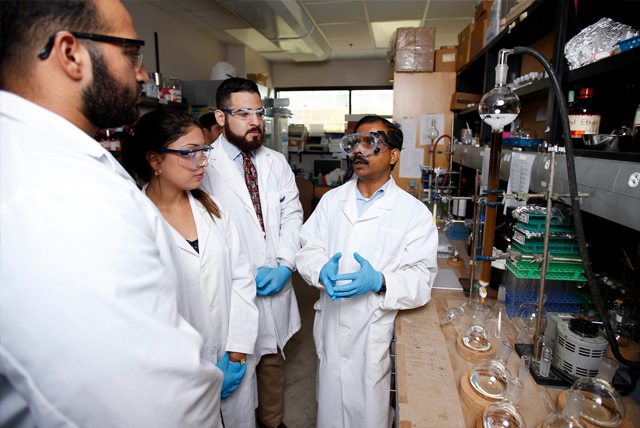Document Type
Article
Publication Date
3-28-2022
Abstract
Mutations of RAS oncogenes are responsible for about 30% of all human cancer types, including pancreatic, lung, and colorectal cancers. While KRAS1 is a pseudogene, mutation of KRAS2 (commonly known as KRAS oncogene) is directly or indirectly associated with human cancers. Among the RAS family, KRAS is the most abundant oncogene related to uncontrolled cellular proliferation to generate solid tumors in many types of cancer such as pancreatic carcinoma (over 80%), colon carcinoma (40–50%), lung carcinoma (30–50%), and other types of cancer. Once described as ‘undruggable’, RAS proteins have become ‘druggable’, at least to a certain extent, due to the continuous efforts made during the past four decades. In this account, we discuss the chemistry and biology (wherever available) of the small-molecule inhibitors (synthetic, semi-synthetic, and natural) of KRAS proteins that were published in the past decades. Commercial drugs, as well as investigational molecules from preliminary stages to clinical trials, are categorized and discussed in this study. In summary, this study presents an in-depth discussion of RAS proteins, classifies the RAS superfamily, and describes the molecular mechanism of small-molecule RAS inhibitors
Recommended Citation
Shetu, S.A.; Bandyopadhyay, D. Small-Molecule RAS Inhibitors as Anticancer Agents: Discovery, Development, and Mechanistic Studies. Int. J. Mol. Sci. 2022, 23, 3706. https://doi.org/10.3390/ijms23073706
Creative Commons License

This work is licensed under a Creative Commons Attribution 4.0 International License.
Publication Title
International Journal of Molecular Sciences
DOI
10.3390/ijms23073706



Comments
© 2022 by the authors. Licensee MDPI, Basel, Switzerland.